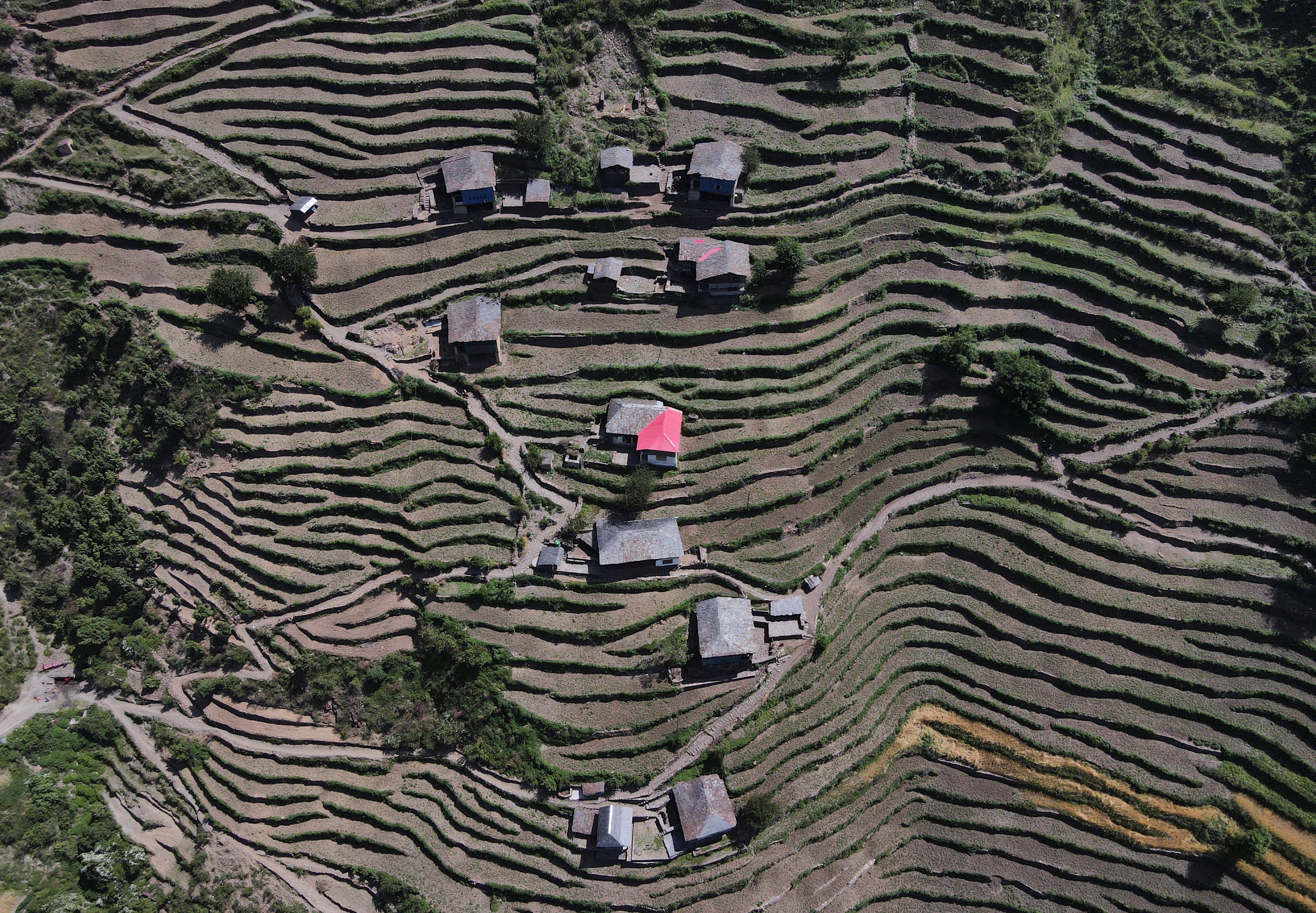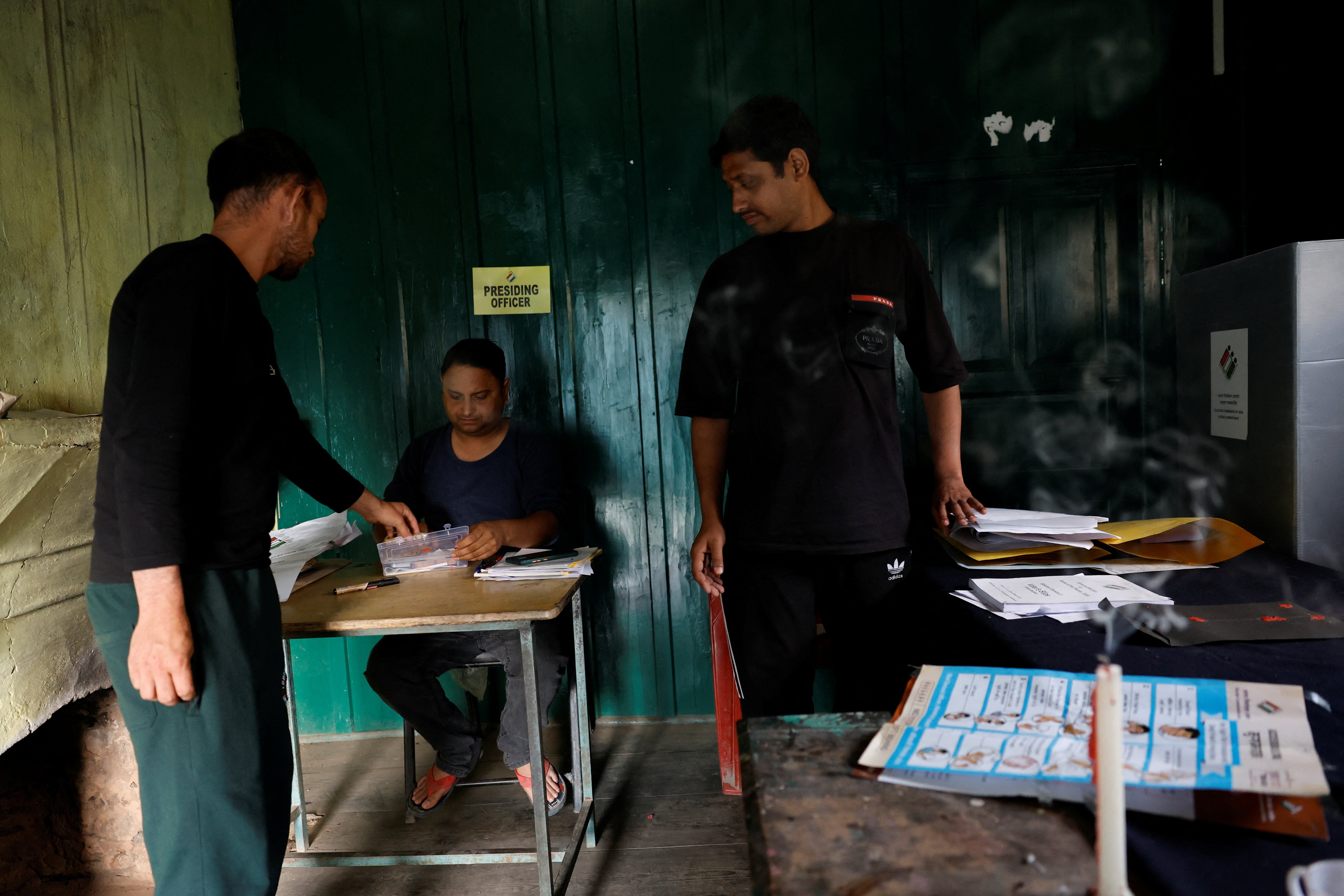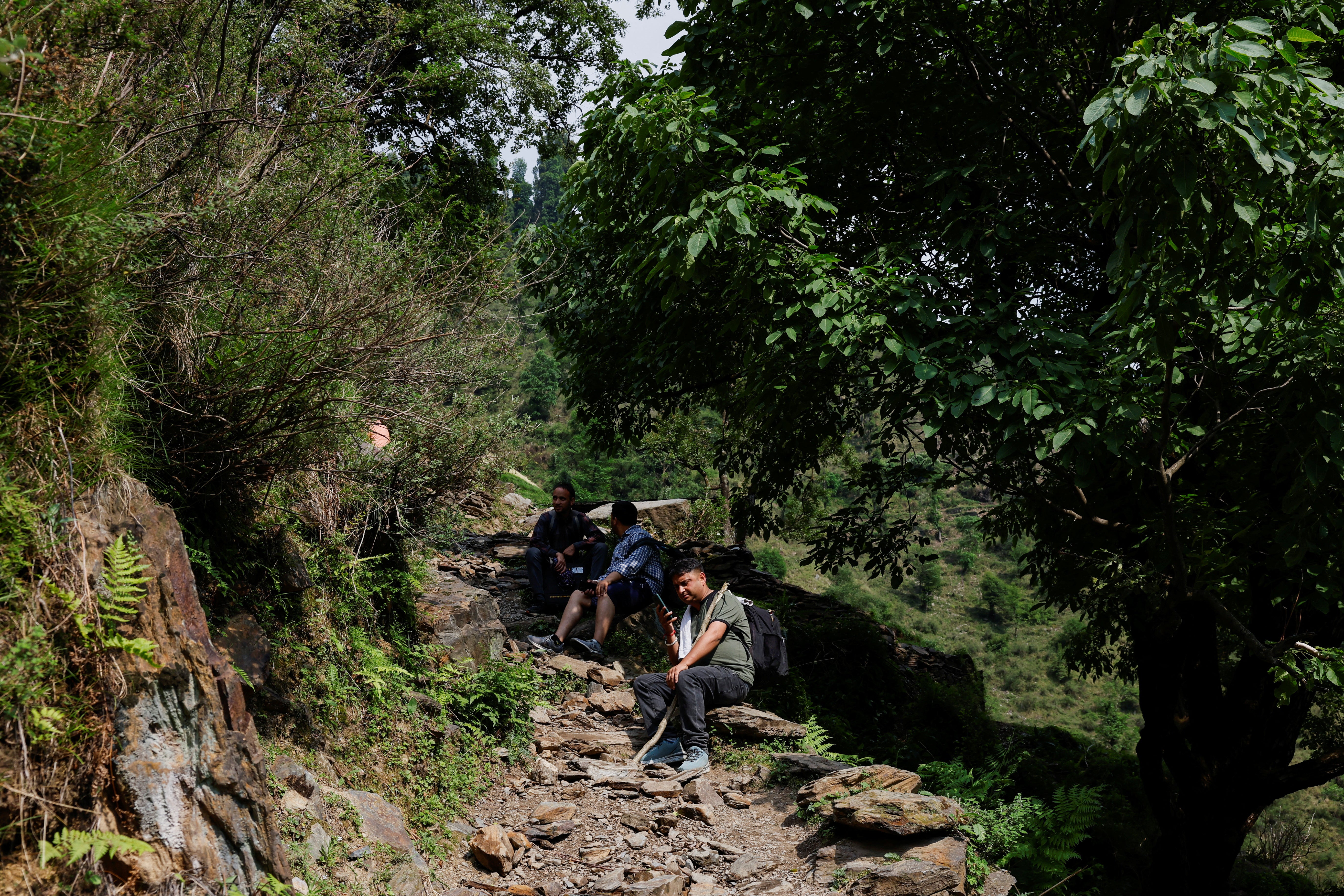The Indians risking their lives to make sure remote Himalayan villagers get to vote
Indian rules say no one should have to travel more than 2 km or so to cast their ballot

Your support helps us to tell the story
From reproductive rights to climate change to Big Tech, The Independent is on the ground when the story is developing. Whether it's investigating the financials of Elon Musk's pro-Trump PAC or producing our latest documentary, 'The A Word', which shines a light on the American women fighting for reproductive rights, we know how important it is to parse out the facts from the messaging.
At such a critical moment in US history, we need reporters on the ground. Your donation allows us to keep sending journalists to speak to both sides of the story.
The Independent is trusted by Americans across the entire political spectrum. And unlike many other quality news outlets, we choose not to lock Americans out of our reporting and analysis with paywalls. We believe quality journalism should be available to everyone, paid for by those who can afford it.
Your support makes all the difference.Vishal Aheer and his team trudged up treacherous Himalayan mountain paths and across rickety bridges for seven hours to make sure that just 185 Indian villagers could vote in what has been a mammoth election.
The rules say no one should have to travel more than 2 km or so to cast their ballot - and Almi, a hamlet in Mandi constituency in the state of Himachal Pradesh, is one of the inaccessible areas where officials have to bring the ballot box to the voters.
“We risked our life to get here,” Aheer said after a trek that crossed rivers, pools and mountain passes.
Aheer, three officials and two policemen set out by road from the town of Bharmour on Thursday morning, then covered 15 km (almost 10 miles) on foot to reach Almi, nearly 3,000 m above sea level, at dusk.
Voting takes place on Saturday, ending at 6 pm. Then Aheer and his team have to head straight back down with the electronic voting machines in sealed boxes, which must be put in a strong room as soon as possible after voting is finished.

Almi’s voters make up roughly 0.0000002% of the 968 million-strong electorate, who have been voting in seven phases since April 19, and this is the most attention they expect to receive in parliament’s five-year term.
“They say vote for us, we will give you help from outside, we will give you a road, we will give you a school - but no one asks us our conditions after the elections,” said 22-year-old student Akwanshi Thakur.

Nearly a billion Indians cast their votes over six weeks starting 19 April in the world’s biggest election to select a prime minister and members of parliament. The second phase of the Lok Sabha elections begins today.
Registered Indians will queue in lines to cast their votes in seven phases till 1 June braving the punishing summer heat.
The 44-day-long electoral process, the second longest in independent India’s history, will conclude with the counting of the votes on 4 June.
India’s electoral process ranks among the costliest globally, with parties and candidates shelling out an estimated $8.7bn (£7bn) in 2019 to woo over 900 million eligible voters.
Join our commenting forum
Join thought-provoking conversations, follow other Independent readers and see their replies
Comments